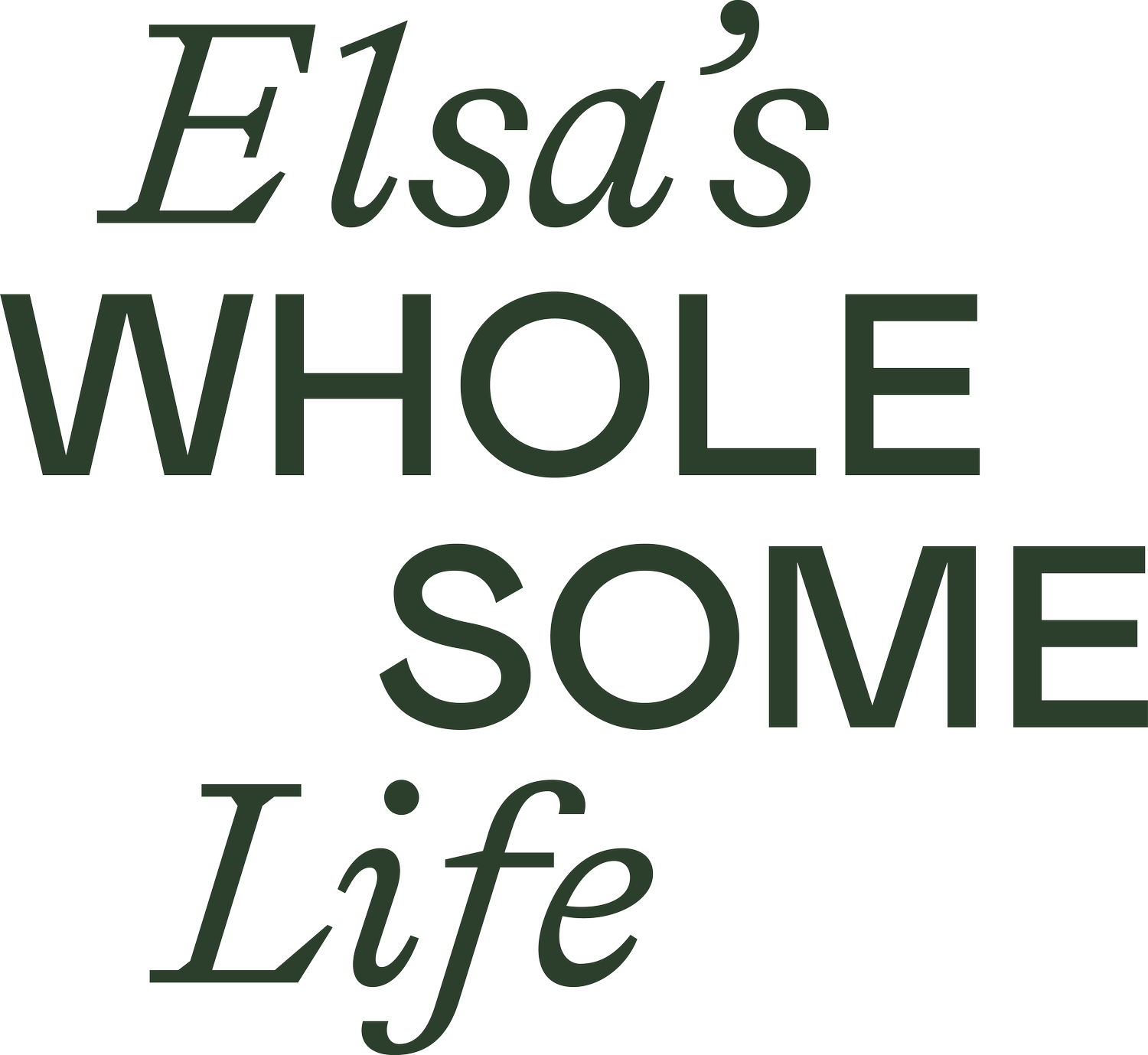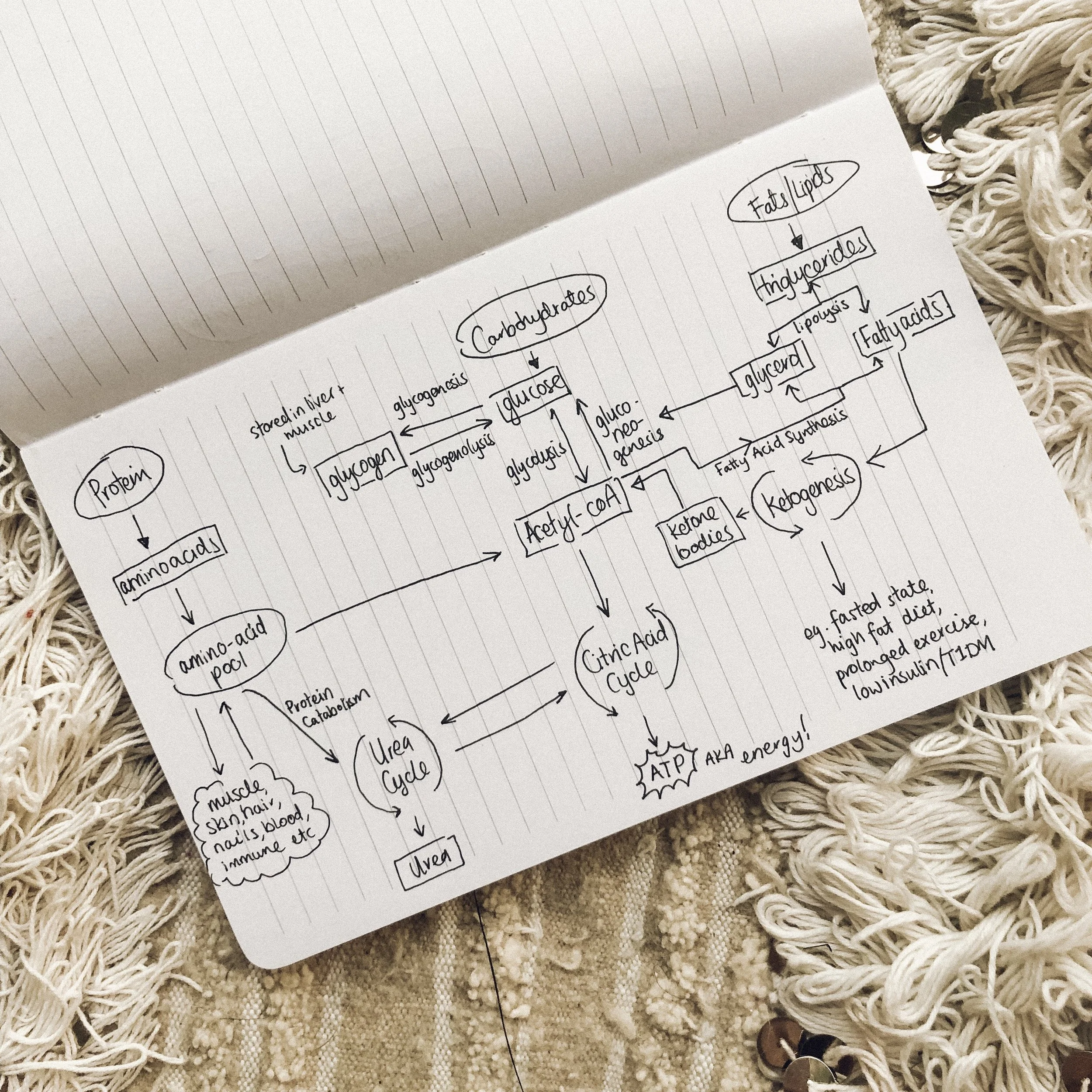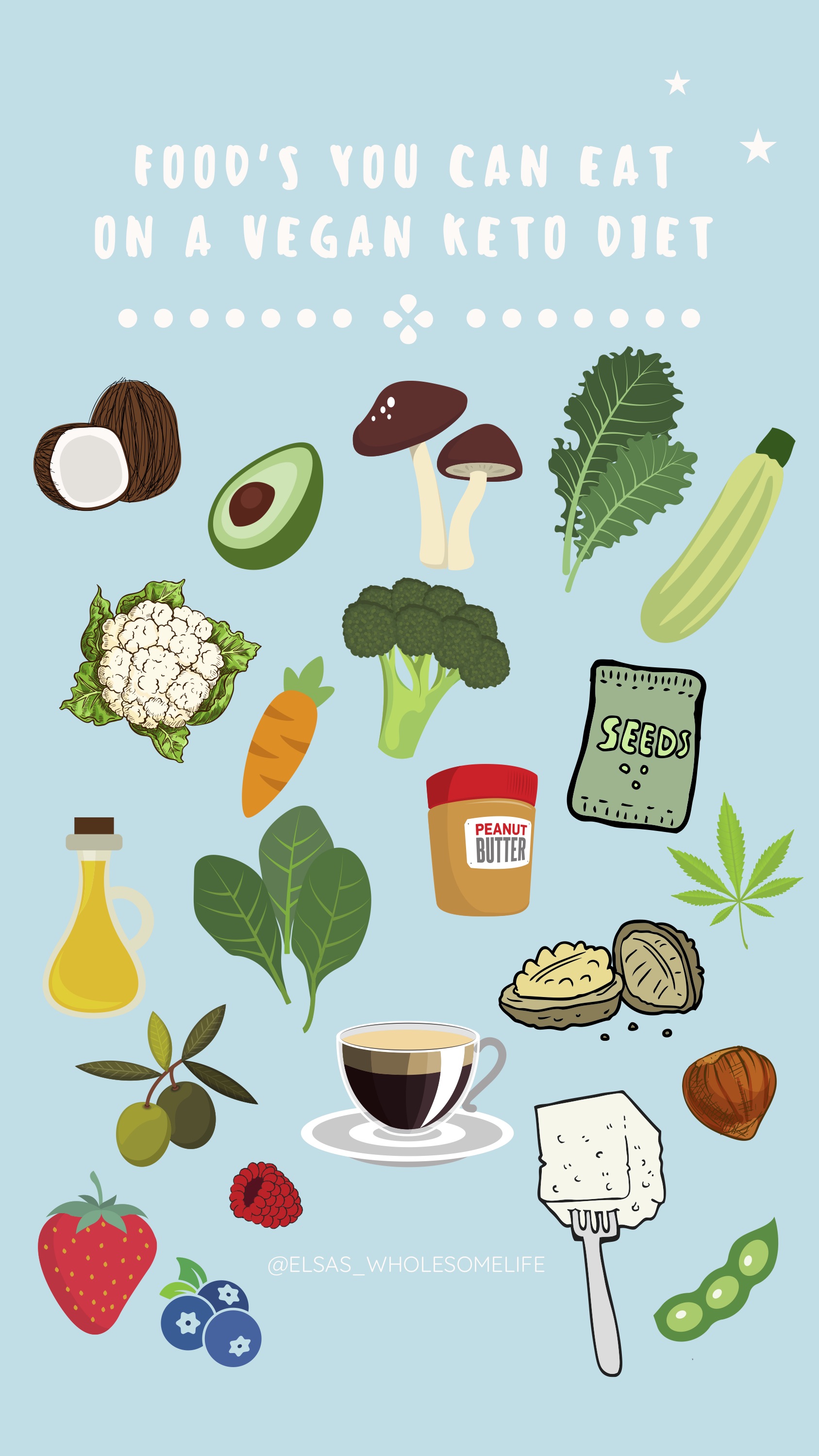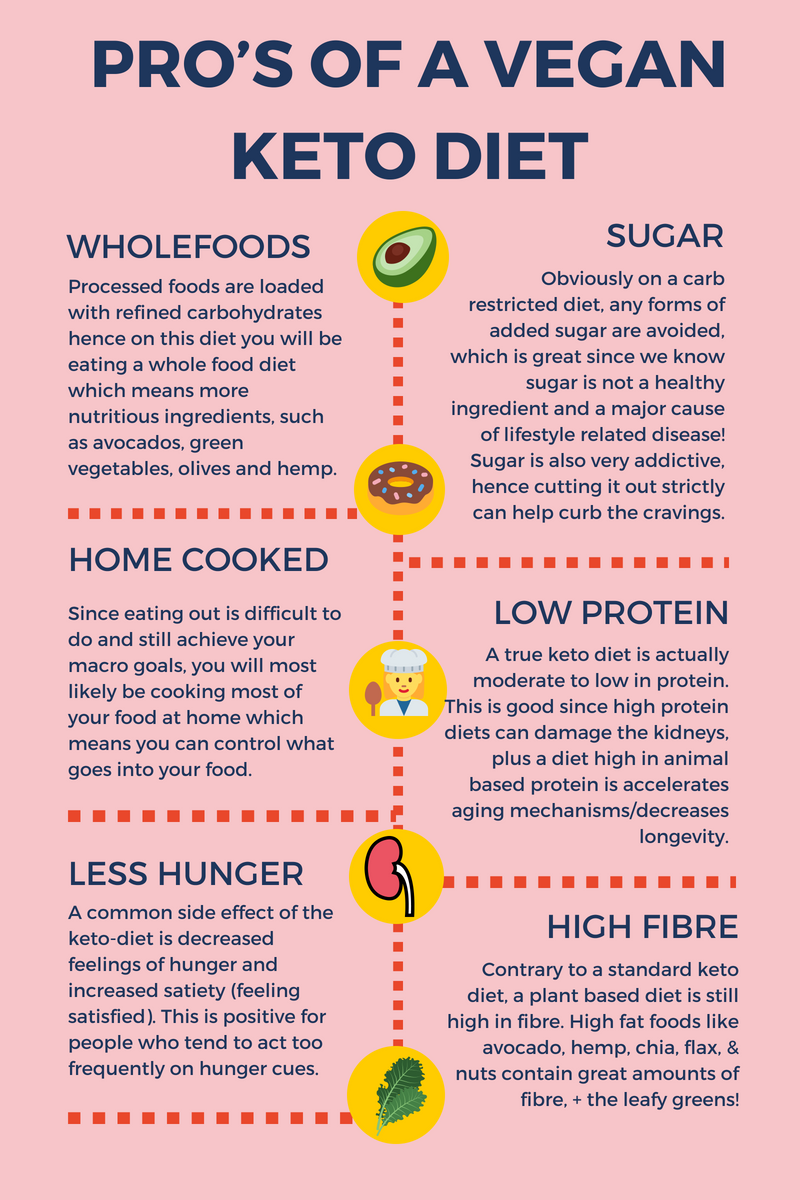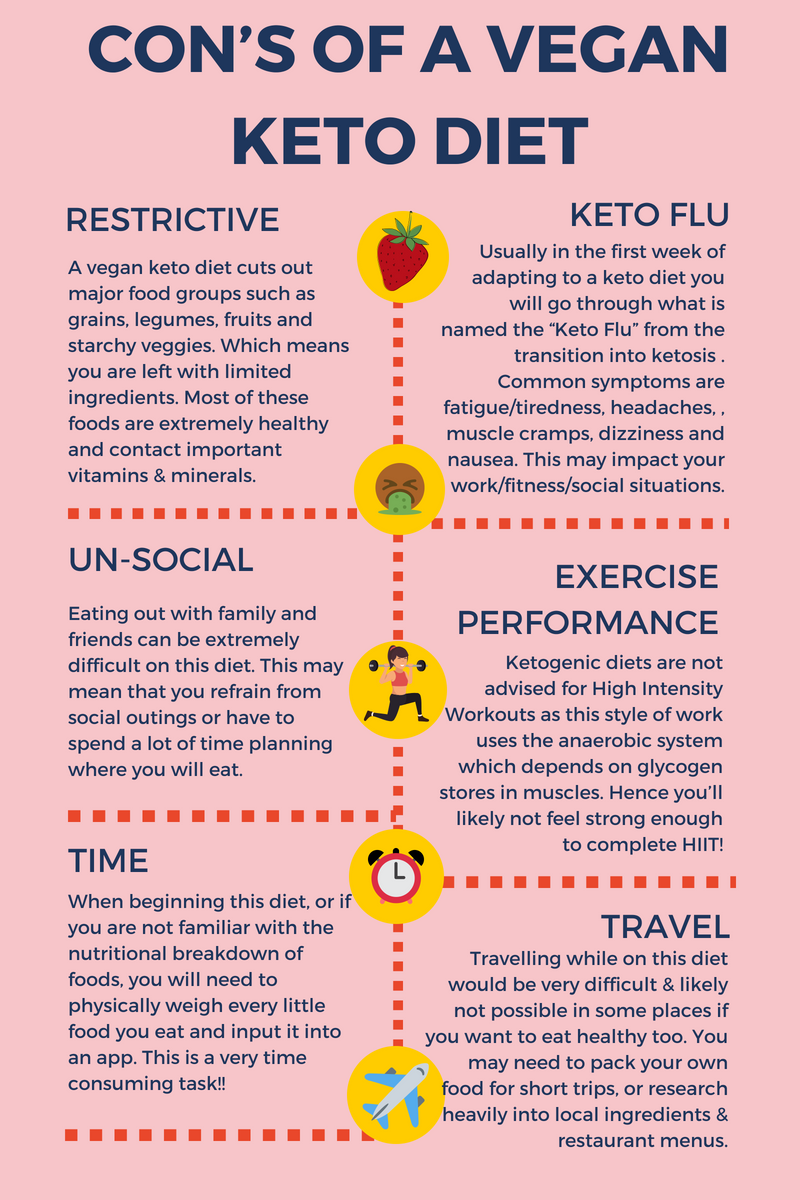My Vegan-Keto Experiment | Part 1
Hello beauties!
Well, if you follow me avidly on instagram, you may have seen a few weeks ago that I went on a vegan keto diet for about 3 weeks, and if you didn’t, well now you do.
I promised I would share a blog on my experience as well as my research on the diet. So here it is! I have decided to break this post into two posts as its getting quite lengthy and quite a lot of information to take on. In part 1 of the blog post I will discuss what the Keto Diet is, what you can eat on a keto diet, what you can eat on a vegan keto diet, as well as looking into some of the research on this diet. In the part 2 I will share a journal of my 3 week experience, along with a description of some of the foods I ate, some photos I took of my meals and a conclusion of my thoughts on the diet (more of an opinion peice). I also filmed a ‘What I Eat in a Day, Vegan Keto Challenge’ which is on my YouTube channel! CLICK HERE TO WATCH IT!!
Okay, so lets get into it....
The keto diet isn’t something new. This diet has been around for a long time. It’s rules and name vary a bit, and there are some popular diets that are similar (e.g. Atkins, paleo, low carb high fat or LCHF - opposite to the popular vegan HCLF diet), each may have slightly different principles or macro goals but ultimately the Keto Diet is a high fat and very low carb diet. True Keto Diets discourage high protein intake as this can prevent your body going into ketosis, which is what differs this diet to the popular Atkins diet.
Currently its getting A TONNE of attention in the media and online. As a dietitian and nutritionist my stance on this diet has always been that it is stupid and just another fad. My philosophy has always been that a whole food plant based diet, balanced carbs, protein and fats, all coming from whole natural plant foods. But, ‘keto-dieters’ are making big claims about this diet... Giving them a new life, promising huge weight loss (without working out), feeling satisfied after meals, less hunger, controlled blood sugar levels, reversing diabetes/improving insulin sensitivity, more mental clarity and focus, more energy, controlling epilepsy, improved HDL and lower LDL in the blood, curing acne and improving skin conditions, less bloating, immune boosting potential and even cancer prevention or cure... just to name a few... Now these claims are enough to grab my attention, which is why I decided to look into this more and find out just how good/or bad this diet really is.
Before we go any further, lets delve into more detail on what the Ketogenic diet is...
But first, here is a quick glossary of some of the metabolic processes in our body as i may mention some through the blog. This takes me back to the biochemistry classes at uni!
Gluconeogenesis - making new glucose from glycerol (from fat breakdown) or amino acids
Glycolysis - the pathway of turning glucose molecules into energy (ATP)
Glycogenesis - storing glucose as glycogen (in liver and muscles) for energy storage. Glucose may also come from glycerol and amino acids (protein).
Glycogenolysis - breaking down glycogen to release glucose for energy or blood sugar stabilisation (in liver and muscles).
Lipogenisis/FattyAcidSynthesis - creating new fat cells (storing excess fats, carbohydrate and protein as fat). Actually we are born with a set number of fat cells, So rather than growing new fat cells or lipocytes, they grow and shrink by the amount of triglycerides inside them.
Lipolysis - breaking down fat cells to produce fatty acids and glycerol. Fatty acids can turn into Ketones via Ketogenesis. Glycerol can turn back into glucose via gluconeogenesis.
Ketogenesis - pathway of producing ketone bodies from fatty acids.
Here’s a drawing I drew to help simplify how these processes interact with each other:
Summary of some of the metabolic processes in our body
What is a KETOGENIC DIET?
The ‘keto’ diet is a ultra-LOW CARB and HIGH FAT diet. Restricting carb intake to around 15-40g net carbs per day (net carbs = total carbs minus the fibre). Full strict keto diets aim for around 5-10% of daily calories coming from carbohydrates. Now... to put this into perspective, that’s equivalent to around 1 banana or 1 slice of sourdough bread. Moderate protein intake of 20-25% of calories and the majority or around 70%-80% from fats. This low carbohydrate diet causes your body to switch into a different energy pathway called Ketosis, metabolising fats into glycerol and fatty acids, and then converting those fatty acids into ketone bodies. Basically it means we are utilising ketones as the primary energy source instead of glucose (carbohydrates). Hence, the lower your net carb intake, the quicker your body may shift into ketosis.
Wait, what actually is ketosis?
Our body prefers to use carbohydrates as its primary energy source. We have processes inside our body to turn our food into glucose and use it to create energy, or store it for later (as glycogen and fat). Excess calorie intake leads to storage as fat (weight gain).
Ketosis, on the other hand, is a different energy pathway that our body uses when our stores of energy (glucose) are low. Such as when fasting for prolonged periods, after long and intense workouts, very low carbohydrate diets, and diabetes (low insulin). This was a survival process of our body during times of starvation/famine in the hunter gatherer days.
In Ketosis our body switches to utilising fat stores in our bodies for energy via Ketogenesis and instead of producing glucose it produces ketone bodies (fatty acids from fat breakdown cannot be converted into glucose). These ketone bodies produced can then enter into the Citric Acid Cycle to produce energy for our cells to use.
The Keto diet utilises this process, not by starving the body but by starving the body of carbohydrates, hence with little or no glycogen stores and low amounts of carbohydrates being absorbed from our diet, our body resorts to ketosis for energy. Of course, we need to maintain our blood glucose levels to stay conscious, hence our body is constantly utilising the process called ‘gluconeogenesis’ in order to create glucose from lactate, amino acids and glycerol (from fat). Some tissues/organs in the body also can only use glucose for energy, (e.g. red blood cell formation) hence gluconeogenesis is a life saving process.
The role of hormones:
Okay so originally I didn’t want to make this post too complex, however I wanted to touch on hormones here too, just because I am sure a lot of you hear about insulin and glucagon but aren’t exactly sure how they interact or play a role here.
Insulin: insulin is a hormone secreted by your pancreas in response to glucose levels increasing in the blood (such as after digesting and absorbing a meal!). Our body likes to maintain a blood glucose level in order to maintain life. Hence we release insulin in response to an increase in blood glucose. Insulin acts as the key to unlock cells and allow glucose to move into cells to bring our blood glucose back into a healthy range. Once in the cells, glucose is used to produce energy for cells (Glycolysis > Citric Acid/Crebs Cycle > ATP), stored in muscles and liver as glycogen (Glycogenesis) or converted to glycerol and turned into triglycerides and stored in fats cells (Fatty Acid Synthesis).
Glucagon: glucagon, like insulin, is also secreted by the pancreas in response to low blood glucose. Glucagon causes glycogen to be broken down into glucose and released into the blood stream (glycogenolysis) to raise your blood glucose or to turn that glucose into energy for cells (glycolysis > citric acid/crebs cycle > ATP).
During a Keto Diet, your carbohydrate intake is restricted which means that blood glucose levels are stabilised and so less insulin is released. This is believed to be part of the weight loss mechanism in a Ketogenic diet, as less insulin secretion means that the pathways of fatty acid synthesis are not active. Of course your pancreas will continue to release small amounts of glucagon and insulin to maintain that balance of blood glucose throughout the day. Your body will begin to break down triglycerides and produce ketone bodies that can enter that citric acid/crebs cycle in order to produce ATP for energy. Keep in mind, you will also be utilising the fat in your food to produce energy after meals, hence its the time between meals (such as overnight) where your body will really be tapping into fat breakdown from body stores (lipolysis) to create energy for cell turnover, tissue repair, growth and healing (most of our bodies repairing happens while we sleep).
What do Keto diet guides recommend you eat?
Protein: all types of meat (Although processed meat is supposed to be avoided I see lots of bacon used in keto recipes), seafood, tofu, and eggs.
Low carb veggies: avocado (lots of this fella), leafy greens, zucchini, mushrooms, broccoli, cucumber and cauliflower.
High/full fat dairy: cheeses and cream.
Nuts and seeds: macadamia, walnut, hazelnut, almond, hemp seed, flax seed, chia seed, sunflower seed, pumpkin seed.
Fruit: ONLY small quantities of berries (berries have a low GI)
Low carb sweeteners (stevia, erythritol)
Oils/fats: coconut oil, olive oil, avocado oil, high fat salad dressings and saturated fats (butter, ghee, lard, cream)
* (source: ruled.me)
What you CANNOT eat:
All legumes are off the table (yep, no beans, no lentils, and definitely no chickpeas).
Absolutely no grains (including bread and pasta... BUT that also means no oats, rice, quinoa, and buckwheat- all unrefined carbohydrates that I consider extremely healthy).
No fruits, aside from a handful of berries.
No starchy vegetables which include potato and sweet potato - my two favourite baked veg! No corn either (which takes corn products like corn chips off the table).
No sugars - now, this is something I can celebrate, we don’t need added sugars after all.
....Ok, so there’s a lot of things you cannot eat. But when doing this challenge I tried not to look at the things I couldn’t eat, but instead look at the things I can eat.
Instantly when I was reading this I thought.. OMG! What are the long term implications of this diet? We know now from research that diets high in saturated fats & protein from animals and low in fibre have long term implications on our health (such as bowel cancer and heart disease).. So while people are looking at the immediate benefits from these diets such as weight loss... the question I was asking myself is: what are the long term implications? By the way, currently there isn’t solid evidence on this diet and longevity as no cultures/groups have followed this diet over a long period of time for us to study, and when we look at the Eskimo diet (a carnivorous diet high protein, high fat, low carbohydrate) they have discovered that these people had shorter life expectancies, plus heart disease and osteoporosis at younger ages...I was also wondering what is the effect on the gut microbiome for lower fibre standard Keto Diets?
....And lastly, can this actually be done healthily from a plant based diet?
Keto Diet and Disease Relationship
While the long term health implications of this diet is not well researched and hence following this diet long term should not be advised, the Keto Diet does have research to support its use in some diseases. It has been well researched in refractory epilepsy treatment, and shown to be useful in paediatric epilepsy patients. The mechanisms for its ability to decrease seizures is not fully understood yet. Some diabetes patients are also having success of managing their blood glucose on a ketogenic diet and improving their insulin sensitivity. As with any dietary change, supervision by your Dr's and a Dietitian is recommended. A ketogenic diet is also being researched in the cancer treatment area. A ketogenic diet is said to inhibit tumour growth via the mechanism of starving cancer cells from glucose. Having worked in a oncology ward on my university practice, I find this super interesting and look forward to reading more research on this. Of course, large human studies on this diet are hard to complete due to patients poor compliance as its a difficult and restrictive diet to follow. A low carb or keto diet is also sometimes recommended to women with PCOS. This is because PCOS can cause metabolic syndrome and further more diabetes.
A note on Intermittent Fasting...
Intermittent fasting is also encouraged on the Keto diet as this allows our body time to deplete its energy from food and begin to break down stored fat (into ketones) for energy (*weight loss*). Intermittent fasting is also trending right now. Naturally, most of us fast everyday without consciously thinking about it. We finish eating around 8/9pm each day, and break fast around 6-9am, meaning we have fasted for about 9-13hrs each day. Intermittent fasting usually means fasting for a little longer. So depending on what works for you, you might choose to delay your first meal until 11am or midday, or you might have an early dinner around 5-6pm. This 12-16hr break from eating allows our body to utilise the energy from the food we’ve eaten and begin to break down stored energy in the form of glycogen from carbohydrates or fat from fat cells. It also means that there is a smaller window of time that you are eating, hence for people who struggle with over consuming food it might mean that their overall food intake is less (for example 2 meals a day or 3 smaller meals and less snacking). Intermittent fasting and longer fasts is a whole topic to discuss and if you want to learn more about it click HERE to read my blog post on it.
Ok, So what about vegan-keto?!
So I know what you are probably thinking... How on earth could you do this as a vegan?
Short answer... WITH GREAT DIFFICULTY.
This meant no bread, no pasta, no rice, no potato’s, no fruit, no legumes or beans. All foods that are healthy when consumed in the most whole food version. I must be crazy... But for the sake of first hand experience, I wanted to give this my best crack so I could see for myself.
Foods to Eat on Vegan Keto Diet...
On a Vegan & Keto Diet you are limited on what you can eat and you definitely have to be more creative with your recipes and ingredients.
Here is a brief summary of some of the foods you can eat, in my next blog post I'll be running through some of the meals I made during my 3 week keto experiment.
Low carb veggies: dark leafy greens, mushrooms, cauliflower, broccoli, carrot, capsicum
Nuts & seeds: macadamia nuts, walnuts, Brazil nuts, almonds, hazelnuts, peanuts, cashews, hemp seeds, chia seeds, flax seeds, sesame seeds, pumpkin seeds.
Plant protein: tofu, tempeh
Fruits: berries, coconut and avocado
Fats: oils such as olive oil, coconut oil, and avocado oil, Olives, Peanut butter
Coffee, tea and unsweetened clear drinks
Milks: Sugar free plant milks
Sugar free sweeteners (stevia & erythritol)
Can a vegan-keto diet be healthy?
When comparing a standard keto diet to a plant based keto diet, I certainly believe this version is much healthier. If you eliminate those foods such as animal based protein (including processed bacon!), saturated animal fats (butter and ghee), and cheese, you can actually eat a very clean and healthy diet rich in minerals, vitamins, and fibre- it is just super limiting in terms of ingredient variety, and the long term implications have not been researched (hence I am not advocating for this diet over a whole food plant based diet, I am more advocating for a vegan keto diet over a standard keto diet).
In order to reach your macronutrient goals on a vegan keto diet, consumption of plant based fats such as: avocado, olive oil, hemp seeds, chia seeds, flax seeds, nuts, and coconut are needed. Fats from hemp seeds, chia seeds, flax seeds, and walnuts are great because they provide you with Omega-3 fatty acids (always remember the rule ‘less six, more three’. So as long as these sources of fats are your main ones then you’ll be getting some great health benefits from this diet. Avocado is another amazing food that you can eat abundantly on a vegan keto diet. This fruit contains a tonne of fibre too. I recommend staying away from oils like sesame oil, canola oil, palm oil, rapeseed, sunflower oil and of course margarine. Stick to olive, flax, chia, hemp and avocado oils, or more so, eat these in their wholefood form first (whole fruits/seeds so you get all them nutrients and fibre).
Standard Keto Diets can be low in dietary fibre, and of course we know that high fibre intake is linked to better health outcomes (fibre helps lower cholesterol, improve blood glucose, improve digestion - move waste through the colon aka keep us regular, and prevent bowel disease/cancer). So when compared to a vegan keto diet, a standard keto diet is less healthy. Meat, dairy and butter contain NO fibre... AND animal based protein activates aging pathways in our body, mainly via the high concentrations of the amino acid lysine.
Can a vegan keto diet be done unhealthily?
Yes, of course. Don’t get me wrong. Some processed vegan foods can still be eaten on a vegan keto diet. For example... Some vegan cheeses and mock meats are low in carbohydrates. As always, eat a mainly home cooked, whole food diet and you are on the track to health!
I wanted to get professional opinion from someone credible, who specialises in Plant Based nutrition, so I asked Michelle McMacken from Veg MD and she kindly offered to provide me with her thoughts on a keto diet vs whole foods plant based diet vs vegan keto diet. Michelles credentials are also listed below and you can follow her on instagram (links below) - her posts are very informative.
What’s better: a whole-foods plant-based diet, a traditional keto diet, or a vegan/plant-based keto diet?
A standard (animal-based) keto diet can be low in fiber and antioxidants and high in unhealthy fats, raising the risk of cardiovascular disease and cancer. A vegan/plant-based version of a keto diet has some health advantages over a standard keto diet: it emphasizes plant sources of fats and protein, which are linked to lower rates of inflammation, insulin resistance, type 2 diabetes, heart disease, cancer, and premature death. A recent study of more than 400,000 people worldwide showed that people eating animal-based low-carb diets had a higher risk of dying over the course of the study compared with those eating plant-based low-carb diets and those eating more carbohydrates.
However, there is little if any long-term research on standard or vegan keto diets, and both diets limit some of the healthiest foods: fruits, legumes, and whole grains. Traditional plant-based diets, on the other hand, are supported by a vast amount of research and are enjoyed by some of the longest-lived people on the planet. A whole-foods, plant-based diet is low in processed grains and added sugars, and rich in healthy plant fibers, antioxidants, and other phytonutrients – a recipe for optimal gut bacterial balance, lower inflammation, improved metabolism, healthier body weight, chronic disease prevention, and longevity.
If you choose to try a vegan keto diet, I would consider doing it only for the short term. In the long run, a diet based in a diversity of whole plant foods is your best bet for health and vitality.
Michelle McMacken, MD
Assistant Professor of Medicine, NYU School of Medicine, Director, Bellevue Hospital Weight Management Program, Internal Medicine, Plant-Based Nutrition, and Lifestyle Medicine, Twitter & Instagram @Veg_MD
Stay tuned for part 2 of the blog post on my personal experience and food journal.
If you’ve got any comments or questions, feel free to leave them below and I'll try my best to get back to you!
Elsa, xxclick here for eBook
didn't realise how many of you were stuck for vegan keto meal ideas so I put this mini book together!
Resources:
Mini recipe eBook:
https://thewholesome.store/products/vegan-keto-mini-ebook
PODCAST:
Rich Roll & Dr Joel Khan - Plant Based vs Ketosis
http://www.richroll.com/podcast/joel-kahn-349/
YOUTUBE:
https://www.youtube.com/watch?v=AOJxfh0b3o8
https://www.youtube.com/watch?v=zrRDnLJdjmQ
WHAT I EAT IN A DAY VLOG || MY VEGAN KETO EXPERIMENT:
https://www.youtube.com/watch?v=OJhujino9B4&t=10s
WEBSITES:
https://www.ncbi.nlm.nih.gov/pubmed/23638933
https://www.ncbi.nlm.nih.gov/pmc/articles/PMC5358584/
https://www.dietdoctor.com/low-carb/keto
Relationship between animal protein, plant protein, and mortality:
Low protein intake and reduction in mortality:
Trials that looked at a 5 day FMD (fasting mimicking diet, low in calories, protein and carbohydrate but high in unsaturated fats)
Dr McDougall’s review on the Eskimo Diet (carnivorous)
https://www.drmcdougall.com/misc/2015nl/apr/eskimos.htm
https://theconversation.com/keto-diet-a-dietitian-on-what-you-need-to-know-99867
Dietary carbohydrate intake and mortality: a prospective cohort study and meta-analysis
https://www.thelancet.com/journals/lanpub/article/PIIS2468-2667(18)30135-X/fulltext
